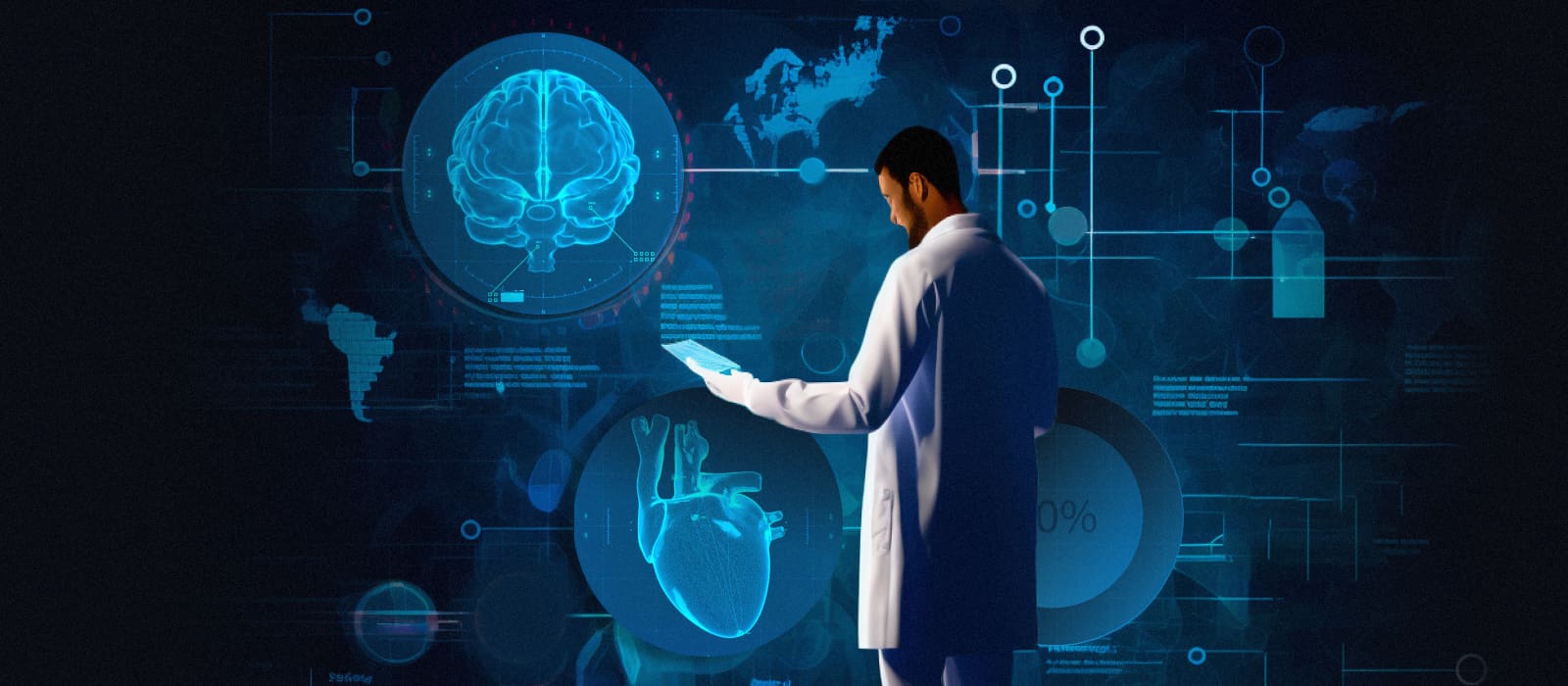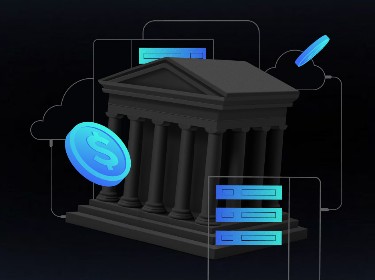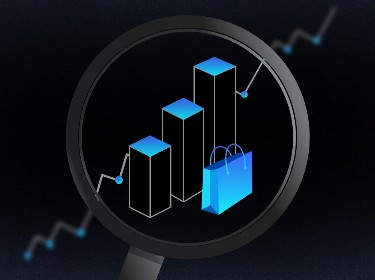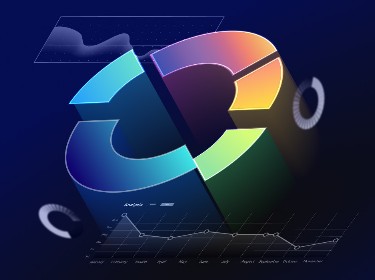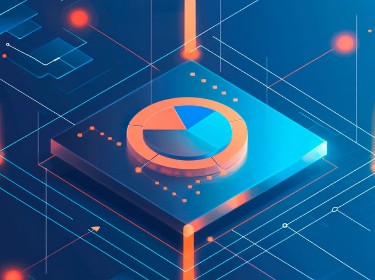Big data analytics in healthcare has established itself as a powerful tool capable of performing numerous functions. But what are its most prominent use cases?
By 2030, the market size for big data in healthcare is expected to hit $105.73 billion, which reflects the technology’s growing importance and impact within the industry.
But what exactly constitutes big data’s role in healthcare, and why is it so crucial?
Our healthcare software development company prepared the top 20 use cases of big data analytics in healthcare for you to delve into how this advanced technology is revolutionizing the sector.
Let’s start!
Top 20 big data analytics in healthcare use cases
We present a comprehensive list that highlights various use cases of big data analytics in the healthcare sector.
![]()
1. Forecasting of patient admission rates
With the help of big data analytics, healthcare providers can analyze extensive datasets to uncover trends and patterns in patient admissions. This enables them to predict admission spikes with greater accuracy, allow for effective allocation of resources, and, consequently, improve patient care and prepare for higher patient loads.
Plus, the integration of Internet of Things technology, which incorporates a variety of sensors, enhances patient monitoring and care through the provision of real-time health data. This, in turn, enables even more accurate predictions and improved resource planning in healthcare.
2. Digital health record enhancement
Big data in healthcare contributes to the optimization of digital health records by efficiently managing patient data and converting it into valuable information. Healthcare providers, then, rely on this analysis to streamline record-keeping processes and enhance data-driven healthcare.
As well as this, big data analytics introduces an extra layer of efficiency in managing digital health records, automating intricate processes, and enhancing the overall operational workflow. This optimization helps healthcare establishments go the extra mile and ensures a more seamless, error-resistant handling of health records.
Primarily, when integrated with blockchain technology, big data becomes significantly more potent. This is because blockchain’s decentralized and secure nature guarantees the integrity and confidentiality of health records and mitigates the risks of data breaches and unauthorized access. Besides, this technology facilitates seamless and transparent sharing of medical data among various stakeholders, thereby enhancing collaboration while upholding patient privacy.
See how our blockchain development company can help boost your organization’s efficiency
3. Healthcare billing fraud identification and deterrence
Big data algorithms have the capability to inspect massive volumes of healthcare claims data, which helps in identifying unusual patterns, anomalies, or deviations indicative of fraudulent activities.
To enhance effectiveness and precision, the analysis often includes machine learning solutions that use historical billing data to recognize common fraudulent schemes, such as billing for services not rendered or upcoding.
Big data analytics in healthcare tools also aid in cross-referencing and verifying the accuracy of claims with patient records, provider credentials, and treatment protocols. They enable swift flagging and investigation of suspicious activities, thereby significantly reducing the time required to detect and prevent fraud, especially when compared to traditional manual methods.
4. Drug development and research
Big data analytics in healthcare enables researchers to uncover new patterns needed to enhance the process of identifying potential drug candidates. Thanks to this, researchers can delve into complex biological data, which aids in the development of more targeted and effective medications.
Importantly, big data analytics facilitates the understanding of drug interactions and patient responses and speeds up the journey from laboratory research to real-world therapeutic applications.
5. Real-time notifications for patient care
Big data analytics in healthcare has the power to enhance patient care through real-time alerting systems that continually gather and analyze vast amounts of health data, often sourced from IoT sensors, to detect subtle changes in a patient’s vital signs or lab results.
Upon detecting these changes, the system generates alerts and redirects them to healthcare professionals for urgent attention. This rapid notification empowers healthcare providers to respond promptly to potential health crises, which might prove crucial in life-saving situations.
6. Remote healthcare and patient telemonitoring
Big data in telemedicine technology enables the efficient collection of comprehensive patient data from various remote sources, which is important for developing personalized treatment plans, particularly for patients in remote areas. It also facilitates the real-time tracking of vital health metrics through wearables and sensors, which makes it possible for healthcare providers to respond promptly to any changes in a patient’s condition.
On top of this, the integration with mobile technology not only enhances patient engagement but also encourages individuals to proactively participate in their healthcare management through user-friendly health apps and monitoring tools, and this in turn fosters a sense of control and ownership over their well-being.
Explore how we delivered Patientory — a blockchain-powered app for managing health data and providing incentives to boost health outcomes
7. Genomic analytics for personalized medicine
Big data in healthcare is essential in genomic analytics for personalized medicine as it helps process large-scale genomic datasets that contain complex genetic information from many individuals and enables the identification of genetic markers related to diseases and drug responses.
Advanced algorithms and computational tools, powered by big data, analyze these markers and uncover correlations between genetic variations and health outcomes. This analysis is vital for developing personalized treatment plans, where medications and therapies are tailored to an individual’s genetic makeup.
Moreover, artificial intelligence solutions act as a crucial element in the interpretation of complex genetic data. AI algorithms excel at identifying subtle patterns and trends within vast datasets, thus helping healthcare providers make more precise treatment decisions based on genetic insights.
8. Patient involvement and satisfaction
For many healthcare institutions, patient engagement and satisfaction are crucial drivers for success. And when these areas are lacking, it is important to identify and address the issues promptly.
Big data analytics in healthcare excels in analyzing patient interactions and feedback across various platforms. This procedure encompasses patient reviews, satisfaction surveys, and digital engagement metrics and includes sentiment analysis to provide a holistic view of patient experiences and preferences.
Afterwards, the information gained enables healthcare providers to customize communication strategies and patient education materials and tailor them to individual needs. As well as this, by monitoring and analyzing patient satisfaction trends over time, healthcare providers can pinpoint areas needing improvement and make targeted changes. This not only improves patient satisfaction but also contributes to better health outcomes by nurturing a more engaged and informed patient community.
9. Hospital resource management enhancement
By applying big data in healthcare, hospitals can allocate resources more efficiently, including staff and equipment. The technology also informs better scheduling of procedures and the use of hospital beds, thus reducing wait times and improving patient throughput.
What’s more, big data analytics in healthcare can be used in optimizing the procurement of medical supplies. It assesses usage rates and forecasts demand, which allows hospitals to maintain well-stocked inventories while minimizing excess stock.
In addition to this, hospitals harness predictive analytics to anticipate specific medical supply needs based on historical usage patterns and upcoming procedural schedules. This foresight enables hospitals to proactively source and negotiate with suppliers, which can potentially lead to cost savings and a more streamlined procurement process.
10. Monitoring of healthcare standards and regulatory adherence
Hospitals and healthcare systems are beginning to rely more on big data to enhance quality and ensure compliance. This trend arises because big data automates the process of monitoring treatment protocols and patient outcomes, and it flags any deviations from established standards.
Besides, big data in healthcare enables the real-time tracking of healthcare processes and ensures their adherence to regulatory requirements — often through intuitive data visualization tools that provide insights at a glance.
Transform complex information into clear and impactful insights with our expert data visualization services
11. Population health management
Another prominent application of big data analytics in healthcare is population health management.
Data models aggregate and evaluate health data from a diverse population and provide detailed information about public health trends. This information generally covers demographics, health behaviors, and environmental factors, which are crucial for understanding community health needs. With these insights at hand, healthcare providers are able to develop targeted interventions for disease prevention and health promotion.
What’s more, big data’s predictive capabilities also enable healthcare systems to anticipate and prepare for potential public health challenges and support the efficient allocation of healthcare resources to areas where they are most needed.
12. Administration of clinical research studies
In clinical trial management, big data analytics acts as a crucial facilitator that is poised to transform traditional methodologies. Its first impact is on improving patient recruitment processes, where data-driven techniques swiftly and accurately identify suitable trial candidates. What’s more, big data tools are instrumental in predicting which participants are more likely to benefit or respond to specific treatments.
During trials, the real-time collection and analysis of data enable continuous monitoring of patient responses and side effects, thereby allowing for immediate adjustments to trial protocols when necessary, which enhances both the safety and efficacy of the trials.
Another aspect worth highlighting is that big data streamlines post-trial data analysis, significantly reducing the time needed to draw conclusions and make decisions about subsequent stages in the drug development process.
Check out our data analytics services offerings and see how our expertise can streamline complex data processes
13. Logistics management in healthcare systems
Big data analytics in healthcare is also essential for forecasting medical supply needs with precision. It achieves this by analyzing extensive data from patient records and hospital operations to predict inventory requirements accurately. This minimizes waste, ensures the availability of essential supplies, and enhances supplier selection by evaluating their performance history, ensuring reliability and quality in the procurement process.
As far as the logistics process is concerned, big data contributes to the optimization of delivery routes and schedules, which results in improved efficiency and reduced operational costs. It also assumes a crucial role in supply chain risk management, identifying potential disruptions or shortages early through trend analysis.
Plus, big data promotes sustainable practices in supply chain development services as it guides hospitals towards environmentally friendly and cost-effective resource choices.
14. Healthcare facility operational productivity
In terms of healthcare facility management, big data analytics allows for energy consumption optimization. Special algorithms delve into usage patterns and spot inefficiencies, which helps hospitals implement energy-saving measures and reduce costs. Notably, the predictive maintenance capabilities of big data anticipate equipment needs, prevent unexpected breakdowns, and maintain continuous patient care.
Also noteworthy is that the integration of IoT devices with data analytics further improves patient monitoring and comfort in hospital rooms. For instance, strategically placed treatment rooms can reduce the time nurses spend walking, allowing for more direct patient care. Waiting areas can be designed for comfort and reduced anxiety, based on patient feedback data. The inclusion of green spaces and natural light, informed by research on their positive effects on recovery, can be factored into the design.
Enhance your strategic foresight with our advanced predictive analytics services and solutions
15. Data-powered pain management
Big data analytics in pain management involves the analysis of data from patient records, sensor outputs, and genetic information by medical professionals, which makes it possible to discern complex patterns in pain occurrence and responses to treatment.
Such comprehensive analysis allows for the identification of subtle factors influencing pain and helps healthcare professionals design more tailored and more sophisticated pain management strategies.
16. Radiology and imaging analysis
Incorporating big data into radiology transforms imaging analysis by enabling the aggregation and examination of multiple imaging datasets and allowing radiologists to detect intricate patterns and anomalies that might be overlooked in standard reviews.
Coupled with computer vision, this integration takes diagnostic precision to a whole new level. Computer vision algorithms, trained on extensive imaging data, are capable of recognizing complex patterns associated with various medical conditions. This AI-driven method complements the expertise of radiologists and provides them with powerful tools to identify subtle signs of diseases, particularly in the early stages.
The combination of big data and computer vision thus offers a more refined, detailed, and accurate approach to medical imaging, greatly enhances diagnostic capabilities, and improves patient outcomes.
Explore how PixelPlex’s computer vision services and solutions can help your business get ahead
17. Data-guided mental health treatments
Big data analytics transforms mental health therapies by providing data-driven viewpoints. It achieves this through the collection of diverse data sets, including patient medical histories, lifestyle factors, and social media behaviors.
Mental health professionals examine these varied data points to uncover patterns and triggers in mental health conditions. This enables the development of highly personalized therapy plans that are customized to individual patient profiles.
Importantly, big data analytics in healthcare supports the real-time tracking of therapy effectiveness, which allows for prompt adjustments to treatment plans, while the analysis of large patient cohorts through big data also aids in identifying broader trends and more advanced treatment modalities in mental health.
18. Sleep pattern analysis for health insights
Big data analytics in healthcare transforms the understanding of sleep patterns by offering unique health insights. It compiles data from a wide range of sources, including sleep monitoring devices and health apps so as to provide a detailed view of individual sleep habits. Healthcare professionals use this information to establish connections between sleep quality and various health aspects like stress levels, mood disorders, and physical well-being.
Big data technology is also essential for the early detection of sleep disorder symptoms and enablement of timely intervention, whereas in public health research, it gathers anonymized data for the study of sleep trends and their societal impacts.
19. Dental health and care
Big data is also reshaping dental health care by enabling the comprehensive collection and analysis of dental health data from electronic dental records, patient surveys, research studies, and many other sources. This extensive data analysis identifies trends and patterns in dental diseases and treatment outcomes.
With big data analytics, dentists can better predict the likelihood of certain dental conditions in patients. It also enhances the customization of dental care and allows treatments to be tailored to the specific needs of individual patients.
On top of this, big data’s role in orthodontics extends to enhancing the design and effectiveness of dental appliances. This improvement in patient outcomes also involves the integration of AR/VR technologies that enable orthodontists to use virtual simulations and 3D modeling for precise customization of orthodontic devices.
Reach out to our AR/VR development team and learn how we can transform your initiatives into a resounding commercial success with the help of this avant-garde tech
20. Forecasting of disease outbreaks
Big data processes a wealth of health-related data from sources like global travel, climate trends, health records, and other critical factors that are essential for epidemic and pandemic predictions. It identifies early signs of outbreaks by synthesizing this diverse information. Experts harness this capability for precise disease spread forecasts and the development of effective containment strategies.
Therefore, the role of big data analytics is increasingly indispensable for global health security, as it offers a proactive and data-driven approach to epidemic management. And as we grapple with ongoing global health challenges, the integration of big data into disease forecasting and response is sure to be a vital tool in safeguarding public health.
How PixelPlex can help
As the healthcare industry evolves, the incorporation of big data into its various processes becomes more significant and even necessary for some businesses. The top 20 examples highlighted in this article emphasize the significance of big data analytics in improving patient outcomes, streamlining healthcare operations, fostering innovation in medical research, and more.
This evolution, however, calls for specialized skills in data engineering, architecture, quality assurance, governance, and security — and our big data consulting and engineering company offers precisely this depth of knowledge and proficiency.
By partnering with PixelPlex, healthcare providers can ensure that they are not only harnessing the power of big data but doing so in a way that is secure, compliant, and optimized for their specific needs.
Contact us to explore our services and take the next step in advancing your healthcare data initiatives.
